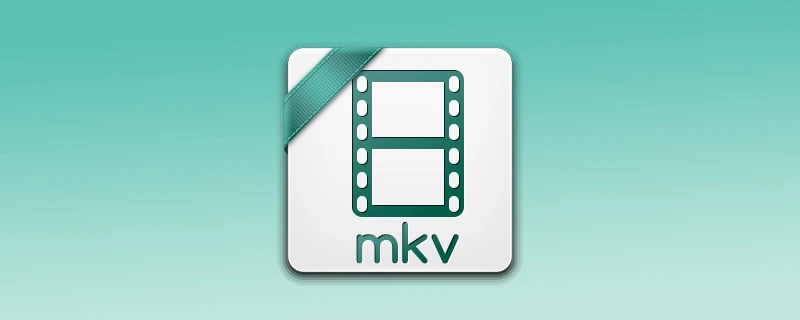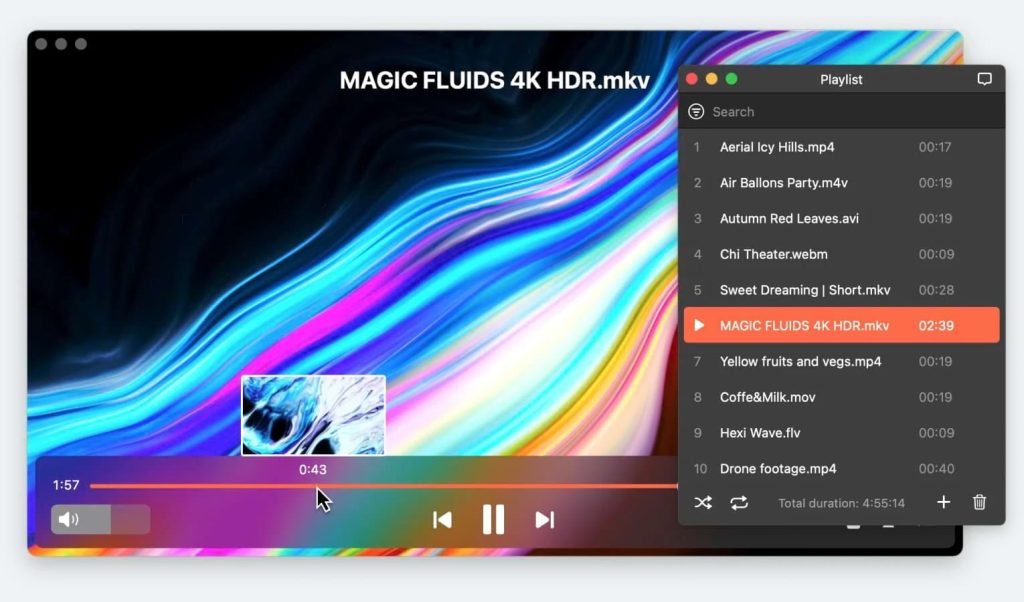MKV Codec: all you need to know about it

Each format is described by a set of specifications (sometimes, a patented standard). According to these specifications, software can be made to create and read an appropriate file. This software is called a codec. Depending on whether it reads or writes, it’s a decoder or an encoder, respectively. If a format aims to become popular, its codecs must be freely available online. It should be well-defined, well-documented, and, most importantly, useful. That’s not always the case, of course, but fortunately, most codecs nowadays are freely available.
That being said, by default, video players tend to lack any support for some existing codecs. It’s a perfectly reasonable strategy for specialized software. Especially if the company behind this software wants users to be restricted to its own DRM-laden, patent-encumbered file types. Cheers to Apple and Microsoft.
What is an MKV Codec?
MKV is a container file format. It can carry an infinite amount of data streams – mainly, audio and video. However, in and of itself, an .mkv is not video or audio. It’s simply an identifier for the encoded data inside. Containers are also useful to humans, holding info such as titles, release dates and licensing information.
MKV is an open format, and it’s being developed by the community. It has feature-rich metadata and compatibility with most multimedia codecs, not to mention streaming capability and DVD-like playback features. It may still be in development, but MKV has lofty goals for the final version. And for its success, the container needs to be extensively used.
In order to increase its popularity, and make open formats more available, multiple communities have created and uploaded free MKV plugins. Video players can integrate these codecs to play MKV video if they don’t support it natively. The codecs are also bundled with many other decoders to ensure that the format’s features are fully implemented.
In this article, we’ll talk about the MKV codec and how it is typically used. While MKV files previously required separate codec installation to play, many modern apps now have built-in support for it. For example, the all-in-one Elmedia Player can open and play MKV files without any issues, so there is no need to install additional codecs.

Why MKV is Sometimes Not Supported
While Matroska aspires to be “THE standard of multimedia container formats”, there have been many obstacles on its way to greatness. Most of these obstacles are products of our age; MKV is competing at a difficult time, against mighty opponents.
- Its first challenge is obscurity. Commercial and patented formats are released into a well-prepared electronic ecosystem. The parent company makes sure that they become known and used – they benefit from marketing and exclusivity. Matroska, on the other hand, does not have a marketing campaign. Neither does it support DRM.
- Its second challenge is a handicap. It’s well known that between two different file types, the ubiquitous one is at a massive advantage. It will likely be chosen by the user and included in software and hardware. This is very prominent with MP4; besides being introduced and curated by Apple, it also got a half-decade head start over Matroska. And there are many other contenders for the #1 spot.
- And finally, it has to face chaos. Definitions, requirements and standards constantly change. New resources and opportunities appear, but they require time and manpower – something that an open-source community direly lacks. Not capitalizing on them means that competitors get an advantage, and MKV gets pushed further down in the ratings.
Matroska Video Format has every chance to succeed. Things are changing rapidly in the multimedia landscape; it’s starting to get native support on popular systems (such as Windows 10), and its opponents are slowly becoming outdated. MPEG group, for example, has recently been restructured. If MP4 fails to keep up with the times, it’s going to leave a nice, big niche.
For now, though, the above reasons keep MKV out of the spotlight, and vendors are reluctant to spend their resources supporting it.
MKV Advantages and Disadvantages?
There are a few reasons why you might want to have MKV compatibility in your player. Namely:
- It’s a widespread format;
- It can mark and select chapters on a single track;
- It supports a menu structure;
- MKV is good for streaming.
On the other hand, here are some downsides:
- Codec, if not updated, might be vulnerable to viruses;
- You’re much more likely to encounter some other formats;
- If you aren’t using it, the codec just takes up space. No need to waste those 10 MB!
Here’s something about vulnerability. So, a decoder is a program that receives input. And any program with input is vulnerable to hacks, such as code injections and overflows. If a program hasn’t been updated to patch out these weak spots, somebody could make a malicious video that gives you a virus or harms your system in a similar way. That’s why you should be wary of using old codecs!
Where to get MKV Codec
As we’ve mentioned, format creators and supporters make their codecs available and accessible to everyone. This is also the case with MKV: you can easily find multiple different versions on the internet. Sadly, the foundation distances itself from non-free software – such as the Windows Media Player. As a result, all but the most popular of these versions are rather suspicious. Still, we will offer some places you can get an MKV codec download:
- Sourceforge This is the definitive source for your MKV needs. The materials hosted by Matroska are, likely, curated before being posted on the site. Or at least they used to be; the latest file is from 2013.
- MKVcodec mkvcodec.com is a mirror site for CCCP (Combined Community Codec Pack) and the original Matroska pack. Don’t worry about getting the latest version – the former was discontinued in 2009, and the latter in 2006.
- CodecGuide The K-Lite codec pack is made primarily for Media Player Classic, but it can be used for other players. MKV is only one of its supported formats, so compatibility may not be as complete and extensive as it would be with an official pack.
- Other sites offer solutions to play MKV and its supported encodings. However, it pays to be careful with unchecked, poorly-tested software.
Alternatives to Getting an MKV Codec
If you’re looking to watch some movies, you’ll definitely need to open MKV. Given the downsides, you might not be excited about an independently developed codec. Well, we’ve got you covered! Elmedia Player is a well-tested MKV player for Mac, without any additional installs required. Our playback options are so varied and useful, file format might not even matter in the end. You’ll have the same convenience, speed and stability with any format.

Elmedia Player stands out not only for its wide range of supported formats (70+ video/audio formats), but also for its smooth performance and sleek design. It offers an intuitive interface, delivers an outstanding HD playback experience, and what’s more, can also function as an AirPlay player for Mac, allowing you to stream videos, music, and other media files to popular wireless devices.
Conclusion
The MKV format is notable for its compatibility with a wide range of codecs and streaming capabilities. Despite its disadvantages and slightly outdated nature, MKV remains a reliable option, especially with the right media player or codec pack to ensure smooth playback. Therefore, we recommend Elmedia Player as a reliable MKV player for Mac, providing an enjoyable and seamless experience.
FAQ
MKV uses an assortment of codecs – most modern codecs can be contained. Some of these include VP8, VP9, AVC, DivX, XviD, and many others. This goes for audio, video and subtitles. Of course, individual codecs also need separate decoders, but they often come bundled with MKV.
Yes, but it could require some additional software. You can download and install a codec, or, alternatively, try Elmedia Player
There are several choices. It depends on your player. For example, K-Lite is compatible with Windows Media Player, MPC and VLC. It is also much better to have a player with a built-in codec.
Users situation: